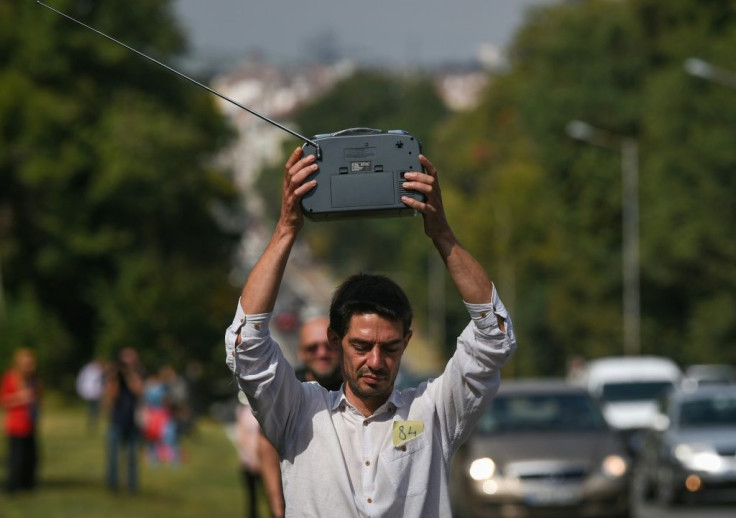Bulgaria Public Radio Chief Sacked In Free Speech Row

Bulgaria's media watchdog sacked the chief of national radio on Thursday in a free speech row that saw the station briefly taken off the air.
The five-member Council for Electronic Media voted unanimously to oust Bulgarian National Radio chief Svetoslav Kostov over last month's unprecedented outage, saying it represented "a grave violation of the media law".
The law requires the public broadcaster to remain on air at all times to inform the public about natural disasters, security and other threats.
The watchdog also lambasted Kostov, who has headed the radio since late June, for temporarily suspending prominent anchor Silviya Velikova and taking her off the judiciary beat a day before the outage.
Kostov has vowed to challenge his ousting in court.
He had accused Velikova -- an outspoken critic of the single nominee to become Bulgaria's chief prosecutor -- of urging people to take part in protests against the candidate, something Velikova denies.
In a wave of solidarity, Velikova's colleagues refused to substitute her on air. At the same time, the radio announced that it would not be on air for five hours on September 13 for "technical maintenance".
Protests by journalists outside the radio station and the intervention of Prime Minister Boyko Borisov led to Velikova's reinstatement.
Subsequent enquiries by the watchdog showed no technical grounds for the outage.
Bulgaria now ranks 111th out of 180 countries in RSF's 2018 World Press Freedom Index, dropping dramatically from its 36th place in the year before it joined the EU in 2007.
The sacking of several prominent journalists working for public and private media, including some who have exposed corruption, has raised eyebrows over the past year.
Reporters Without Borders (RSF) and the Bulgaria branch of the Association of European Journalists have issued numerous statements to support Velikova and warn against rising pressure on journalists.
"There is a sort of media civil war climate in the country, and this is not pluralism. Instead there should be safeguards for editorial independence, freedom and trustworthiness of news information," RSF's Secretary General Christophe Deloire said Thursday after meeting with Bulgarian President Rumen Radev.
"The situation is absolutely terrible, probably it has never been as bad as it is now," RSF's spokeswomen Pauline Ades-Mevel added, stressing that Bulgaria was one week away from picking a new chief prosecutor "who we think is against the media".
Protests against the nomination of Ivan Geshev as the new chief prosecutor have continued ahead of his expected appointment on October 24.
Civil society groups have criticised the lack of choice in the nomination procedure, as well as Geshev's perceived lack of professionalism and independence from the government.
© Copyright AFP {{Year}}. All rights reserved.





















